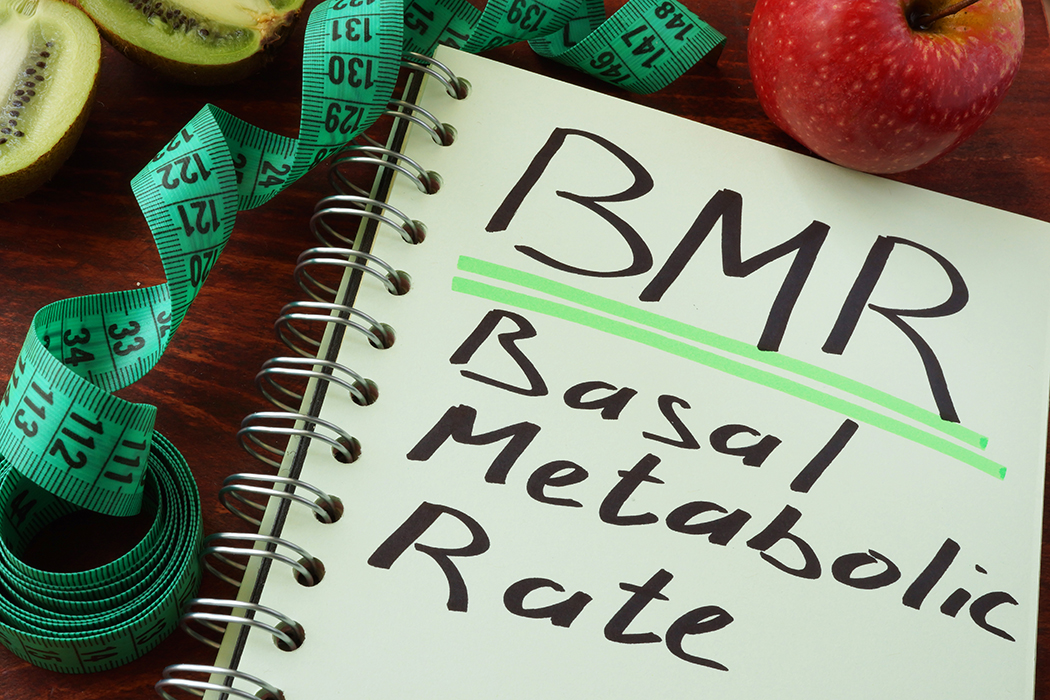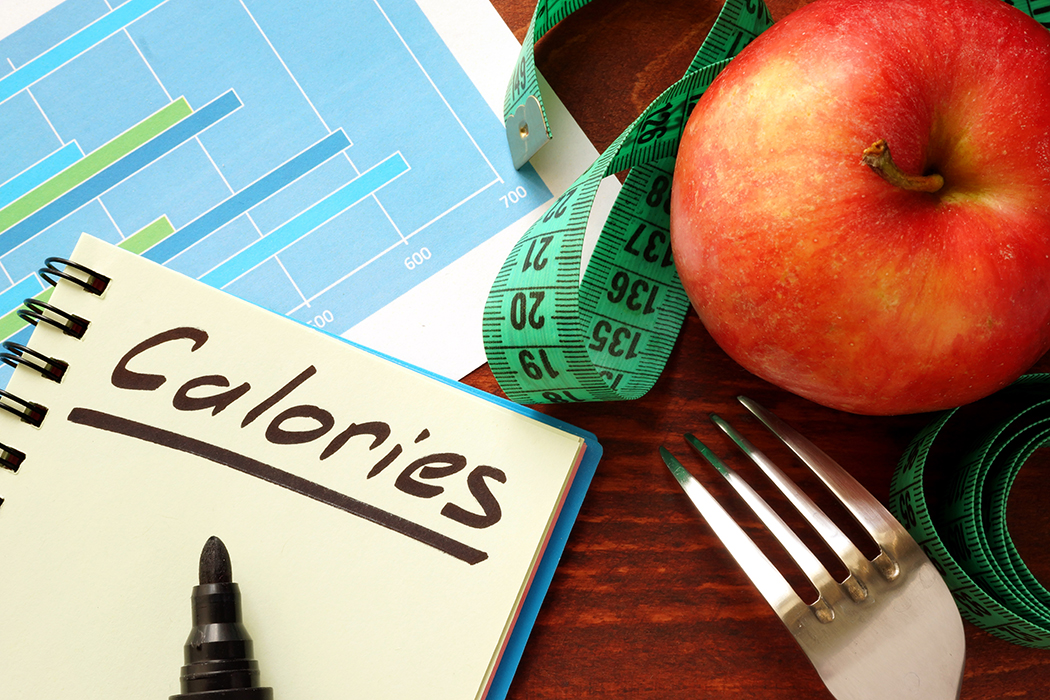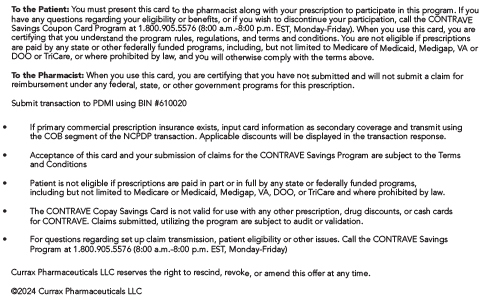BMR Calculator: Calculate Your Basal Metabolic Rate
Losing weight is hard in itself, but it can be even harder if you don’t know how many calories you need to burn every day to achieve your goals. The calories listed on food packages tell you about the amount of energy the food contains, but the caloric needs of different people can vary tremendously based on your activity level and your individual metabolism. Therefore, to effectively begin your weight loss journey, you may want to know how many calories your body specifically requires. Using a BMR calculator can help you better understand how many calories you need on a daily basis. The better you understand your unique caloric needs, the easier it is to monitor your weight and keep your calorie consumption within the healthy range for your body. Try out our BMR calculator to quickly estimate your basal metabolic rate. Read on for more information on what BMR is, the significance of this metric, and how to use your BMR calculation to achieve your weight loss goals.
- What Is BMR?
- What Is a Healthy Basal Metabolic Rate?
- How Is BMR Calculated?
- How to Use the BMR Calculator
- Using Your Basal Metabolic Rate to Achieve Weight Loss Goals
- Use Our BMR Calculator to Inform Your Weight Loss Journey
*This calculator uses the Mifflin-St Jeor equation and its results are based on an estimated average of Calories expended per day in healthy individuals at rest. Source: Am J Clin Nutr. 1990 Feb;51(2):241-7. doi: 10.1093/ajcn/51.2.241.
Your BMR: Calories/Day
Total Calories Needed per Day Depending on Activity Level:†
| Activity Level | Description | Calories |
|---|---|---|
| Low | You get little to no exercise | |
| Light | You exercise lightly (1-3 days per week) | |
| Moderate | You exercise moderately (3-5 days per week) | |
| High | You exercise heavily (6-7 days per week) | |
| Very High | You exercise very heavily (i.e. 2x per day, extra heavy workouts) |
The calorie deficit you need to achieve to lose weight will vary based on your specific goals and body. However, in general, a daily 500 calorie deficit may allow you to see weight loss results. Learn more about Calorie Deficits and how changes in both diet and exercise can help you customize a calorie deficit plan that works for you.
†Calculation of calories needed to support varying activity levels is based on: Low = BMR * 1.2, Light = BMR * 1.375, Moderate = BMR * 1.55, High = BMR * 1.725, Very High = BMR * 1.9. As activity level is broadly defined, will subjectively vary from person to person, and change over time, these results may only be considered estimates and not accurate in all cases.
Disclaimer: This calculator is for informational purposes only and should not be considered as a substitute for professional medical advice, diagnosis, or treatment. Always consult with a qualified healthcare professional for personalized advice and guidance related to your metabolic rate.
What Is BMR?
Your basal metabolic rate, or BMR, is the amount of energy your body needs to complete vital bodily functions. This includes all the processes your body needs to do on a continual basis for you to survive, such as:
- Circulating blood throughout your body
- Breathing
- Adjusting your hormone levels
- Maintaining your body temperature
The amount of energy your body uses to complete these processes comprises the largest energy expenditure for your body—for most people, BMR accounts for between 50-80% of their daily energy usage. The rest of the energy you expend throughout the day, which is not included in the BMR calculation, goes towards processes like exercise, physical movement, and eating.
A basal metabolic calculator can help you determine how many calories your body may need to maintain essential functions while at rest. You can then make more educated decisions about your food habits and exercise schedule so that you can maintain a healthy weight.
BMR vs BMI
BMR and BMI sound very similar, which can make them easily confused acronyms. However, the two numbers measure very different components and functions of your body. Understanding both can help you take more control over your health.
Basal metabolic rate, as we already discussed, looks at the amount of calories, or energy, your body will expend to maintain vital bodily functions in a resting state. This rate does not look at the calories spent on exercise and other aspects of daily life.
The BMI, however, is a calculation used to better understand body composition. A BMI calculator works by dividing a person’s weight (lbs) by their height (in) squared and then multiplying the result by 703. This helps us get a quick look at the relationship between the person’s height and weight.
The BMI calculation is not perfect, as it does not take into account people who lie outside the norm, such as those with high amounts of muscle mass. However, it does provide a good starting point to see if someone is underweight, at a healthy weight, or overweight. This information—-combined with your BMR—-can potentially help you set healthy and informed weight loss goals.
BMR vs RMR
BMR and RMR provide extremely similar types of information. Both provide information on the number of calories needed by the body while at rest, but are measured slightly differently. While the BMR is a measure of how much energy is expended only for critical body functions when the body is at complete rest, RMR includes these but also considers the energy spent during minimal activities like standing or eating. This means the value you get for your RMR is typically a little higher than the BMR.
What Is a Healthy Basal Metabolic Rate?
Basal metabolic rate varies from person to person and it’s largely measured using variables that are outside of your control, such as your sex, height, and age. In general, most people tend to have a BMR that ranges from 1,000 to 2,000, which indicates that you burn somewhere between 1,000 and 2,000 calories per day through the function of your vital bodily functions. However, your exact BMR will vary based on your physical characteristics and there’s no single figure you should be aiming for.
How Is BMR Calculated?
There are different formulas that have been developed over time to calculate BMR. Our BMR calculator uses the Mifflin-St. Jeor equation to produce a BMR estimation. This equation will look at a few key individual variables, including:
- Age
- Sex
- Height
- Weight
Using these four variables, we can estimate your BMR. Your BMR provides valuable insight into how your body uses energy and what it will need to function, so that you can better estimate your caloric needs for weight loss and weight maintenance. This number can then be used to set weight loss goals and monitor caloric needs so that you can take better control over your health.
How to Use the BMR Calculator
To use this calculator, you will need to enter some basic information about yourself, including your:
- Age
- Sex
- Height (feet or centimeters)
- Weight (pounds or kilograms)
Enter values for each of these categories in the appropriate box and then click “Calculate your BMR” to generate a result. Once you have your BMR, you can apply your typical activity level to determine your daily caloric needs to maintain your current weight.
Using Your Basal Metabolic Rate to Achieve Weight Loss Goals

Once you have calculated your BMR, you can use this information to work towards your weight loss goals. To achieve healthy weight loss, you need to burn more calories than you consume in a day, something known as a caloric deficit. This encourages your body to dip into your stores of fat and allows you to start to lose weight.
Therefore, when you know how many calories your body needs to function and how many you typically burn through exercise, you can make a more reasonable estimate regarding how many calories you want to consume to achieve your weight loss goals. Incorporating healthy snacks and exercise into your routine can help you start to see positive changes.
As you start your weight loss journey, you can modify your daily calorie intake goals based on your progress and what you can healthfully maintain throughout the process. Keep in mind, especially if you have large weight loss goals, that your BMR can shift as you start to lose weight. Your weight is one of the factors used in the calculation. In other words, once you lose some weight, the number of calories your body needs to operate will drop.
Calculating your BMR at different points throughout your weight loss journey can help you more accurately track your body’s caloric needs. In the event you reach your desired weight, you can then use your BMR to determine the number of calories your body needs to maintain your new weight as well. Determining your maintenance calories can then help you avoid regaining weight once you have achieved your goals.
Use Our BMR Calculator to Inform Your Weight Loss Journey
Getting started on the path toward weight loss can be a big step and navigating all the information available about successful weight loss can feel confusing and overwhelming. Fortunately, there are methods you can use that are based on science and how the body operates to help you make smart decisions about how to modify your caloric intake so that you can reach your weight loss goals.
Knowing how to calculate BMR gives you an excellent starting point. With your BMR in hand, you can better understand how many calories your body typically uses to function on a day-to-day basis. More information can lead to a more targeted and precise approach when it comes to tackling your most valued weight loss goals. For example, if you are exercising to lose weight, you can review both your BMR and calories burned through your workouts to get a better idea of how many calories you can consume in a day while remaining in a caloric deficit that aligns with your goals.
Get started on your journey with the help of our BMR calculator. Try out our BMR calculator and consider incorporating the result into your larger weight loss plan. Finding a doctor to guide you on your journey can also help you learn more about what additional steps you can take to achieve a healthy weight.
Related Resources

Body Fat Calculator
View
The Keto Diet For Beginners: How to Start a Ketogenic Diet Plan
View
High Fiber Foods That Are Good for Weight Loss
ViewLatest Resources
Ask your healthcare provider about CONTRAVE
Get help starting the conversation.
The CONTRAVE Chronicles Blog
Get recipes, workouts, success stories, and healthy lifestyle tips.
Just getting started with CONTRAVE?
See what you can expect.


